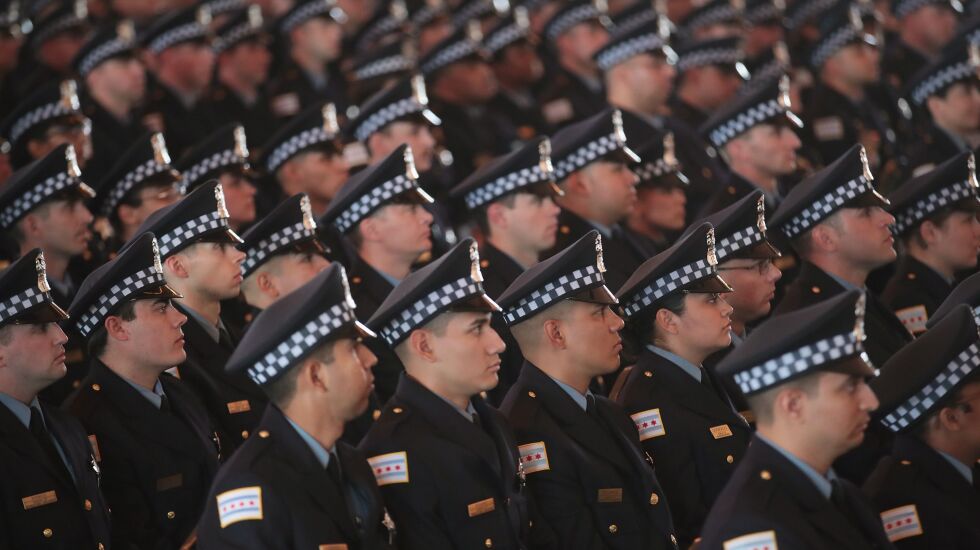
The court-appointed monitor overseeing reform of the Chicago Police Department is calling on newly elected Mayor Brandon Johnson to address longstanding staffing problems that have slowed down — and made it difficult to even measure — improvements mandated by a federal consent decree.
In a report filed in federal court Thursday, monitor Maggie Hickey’s team offered three broad agenda items for the mayor, who will decide on a new superintendent over the next several months.
Hickey urged the Johnson administration to conduct a comprehensive study of department staffing, data collection and reporting, and to develop a community policing plan.
“While the city and the CPD have made significant progress under the consent decree, they must make immediate efforts to avoid further delays,” wrote Hickey, a former federal prosecutor who has led the team of experts advising and tracking Chicago Police Department reform efforts under the consent decree signed in 2019. “It is our hope that the new administration and incoming superintendent will meet this moment.”
The report largely repeats findings of previous reports that have been submitted by the monitoring team every six months: CPD has made progress at the lowest level of compliance with federal mandates, such as drafting new policies, but has fallen far short of fully implementing new practices.
The consent decree settled a lawsuit over widespread abuses of civil rights identified by a U.S. Justice Department probe following the public outrage over video of a CPD officer shooting 17-year-old Laquan McDonald 16 times. It identified nearly 600 areas of reform.
As of June, CPD had reached the lowest level of compliance with 82% of the decree’s mandated changes, but was in full compliance only in 28 areas, about 6%, according to the report.
The report praised the department for finalizing policies on foot chases and the Crisis Intervention Team, as well as completing training for officers on how to respond to misconduct by their peers, and the hiring of a director of wellness to address the high rate of suicides among officers.
But putting those policies and others into practice has been slowed by a persistent shortage of staff on teams tasked with creating policy and training, and tracking data to measure whether they’re being followed.
The department also lagged in promoting enough officers to supervise how policies are being followed in the field, including “accountability sergeants” tasked with investigating allegations of misconduct.
The previous report from the monitor noted concerns that Robert Boik, who headed up CPD’s Department of Constitutional Policing, had been fired by then Supt. David Brown after complaining about staffing cuts.
The latest report does did not mention the departure of Boik’s replacement, Tina Skahill, who resigned in early June claiming she was leaving the department because of “retaliation” that violated the department’s whistleblower protection policies and state law.
In a statement, interim Supt. Fred Waller noted the department had hired nearly 1,300 officers since the start of 2022 and noted that the Tactical Review and Evaluation Division — which Hickey said was understaffed — was conducting reviews of officers’ use of force and analyzing and reporting out the data.
“Our dedicated department members have been working throughout the past four years to develop and implement reforms across CPD,” it said. “This is clear in the 82% of consent decree paragraphs that have received preliminary compliance. Though a lot of work has been put in, there is more to do as we continue working to achieve full compliance and fulfill our consent decree obligations.”







